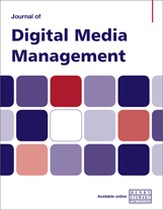Utilising machine-learning tools to increase access to archival collections
Abstract
This paper discusses the transformative potential of using machine-learning (ML) tools in archival institutions to enhance the accessibility of archival collections. It highlights the challenges faced by archival professionals in managing the vast volume and diversity of archival materials, including physical backlogs and the difficulties of describing both digitised and born-digital collections. The paper explores the history of artificial intelligence and its relevance to archival work before delving into two case studies conducted by the author, a metadata archivist at the University of Calgary, involving the use of handwritten text recognition and automatic speech recognition tools to extract descriptive metadata from archival finding aids and generate transcriptions of oral histories, respectively. Through a review of existing literature and practical case studies, the paper provides archival professionals with a foundational understanding of ML concepts and insights into how these technologies can be harnessed to improve the accessibility and usability of archival collections.
The full article is available to subscribers to the journal.
Author's Biography
Allie Querengesser is the Metadata Archivist for the University of Calgary Libraries & Cultural Resources, sitting in both the Digital Services and Archives and Special Collections units. She has been the Chair of the Technology and Archives Special Interest Section of the Association of Canadian Archivists since 2020. Her research interests include preserving video games, machine learning in archives and digital collections, and systems integration of archival technological ecosystems. She holds a master of library and information studies and a certificate in computer game development from the University of Alberta.
